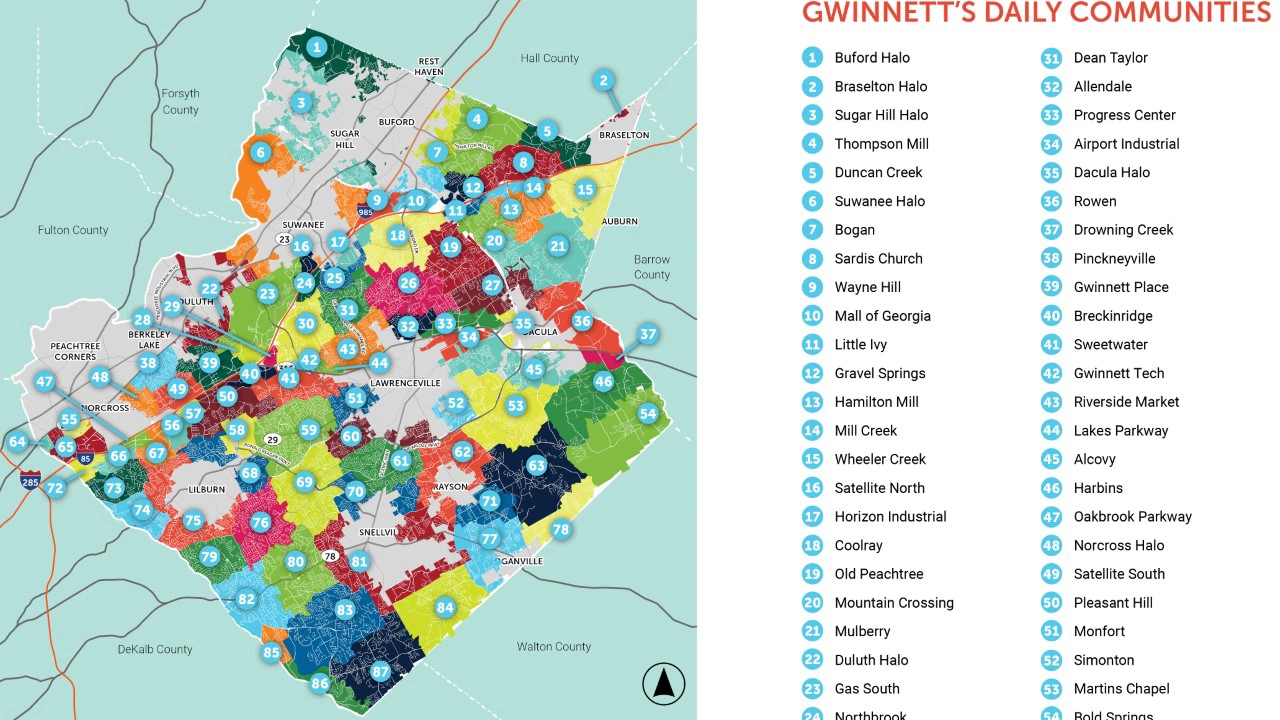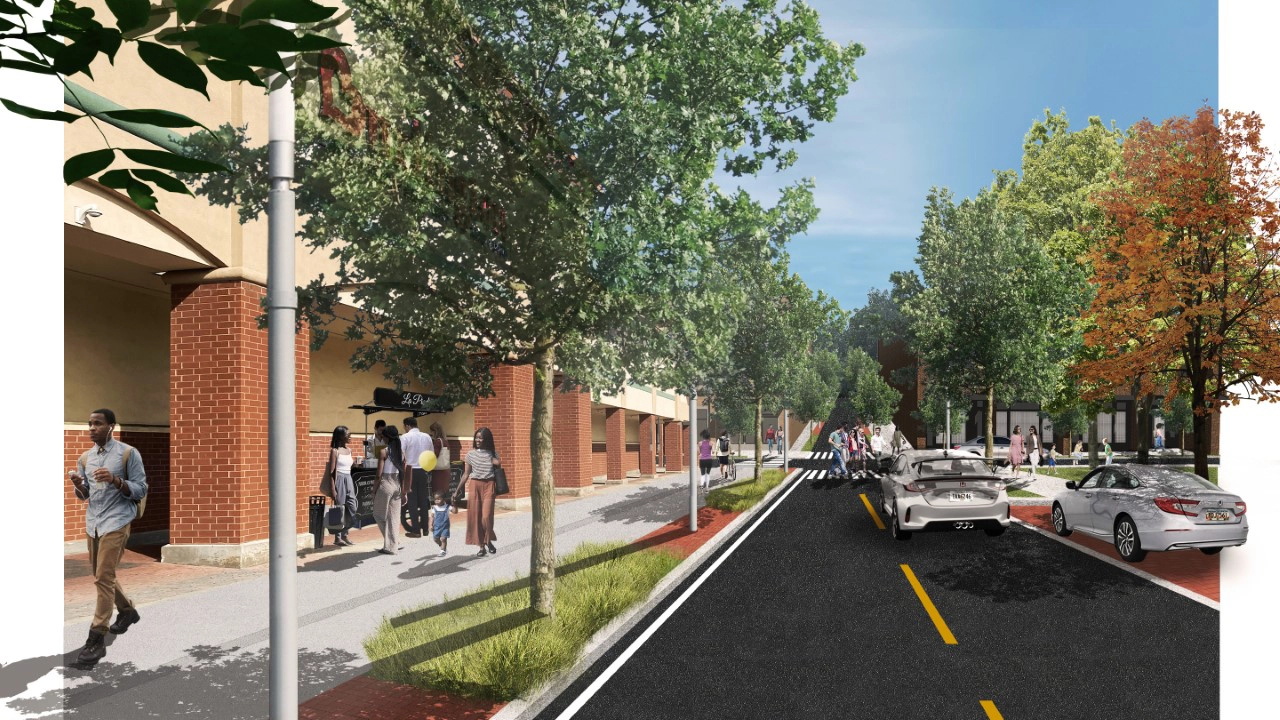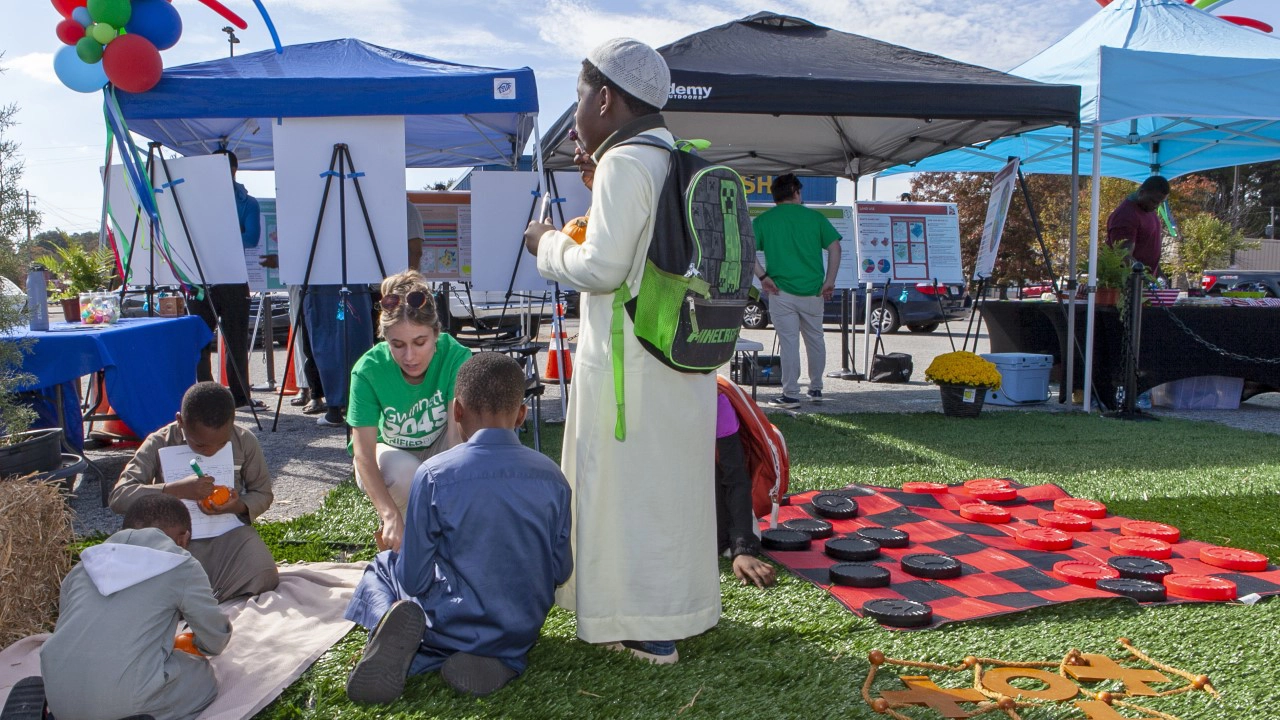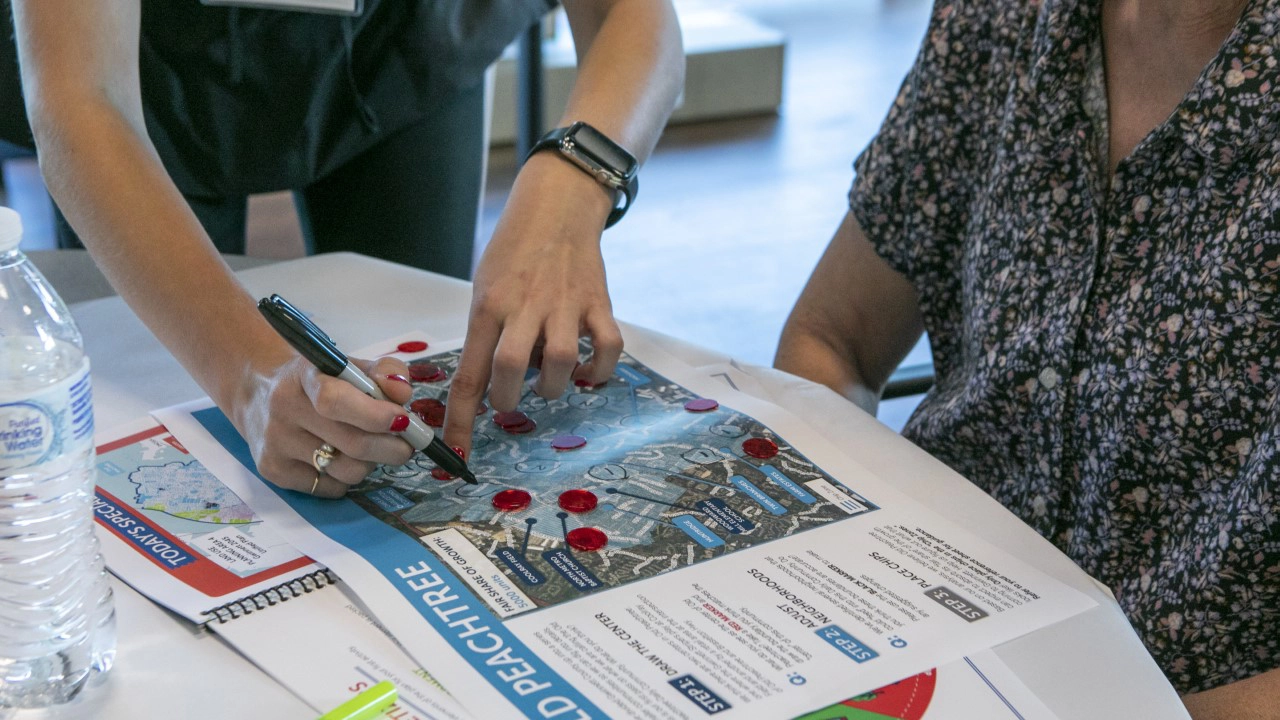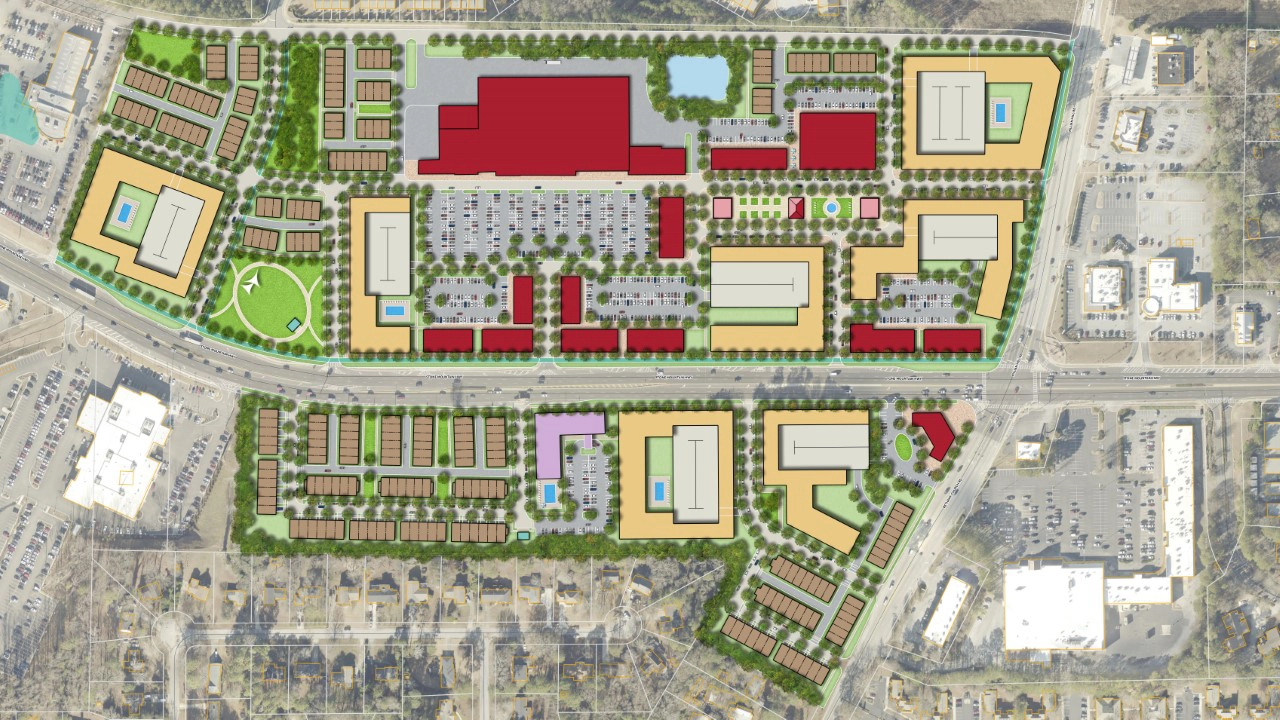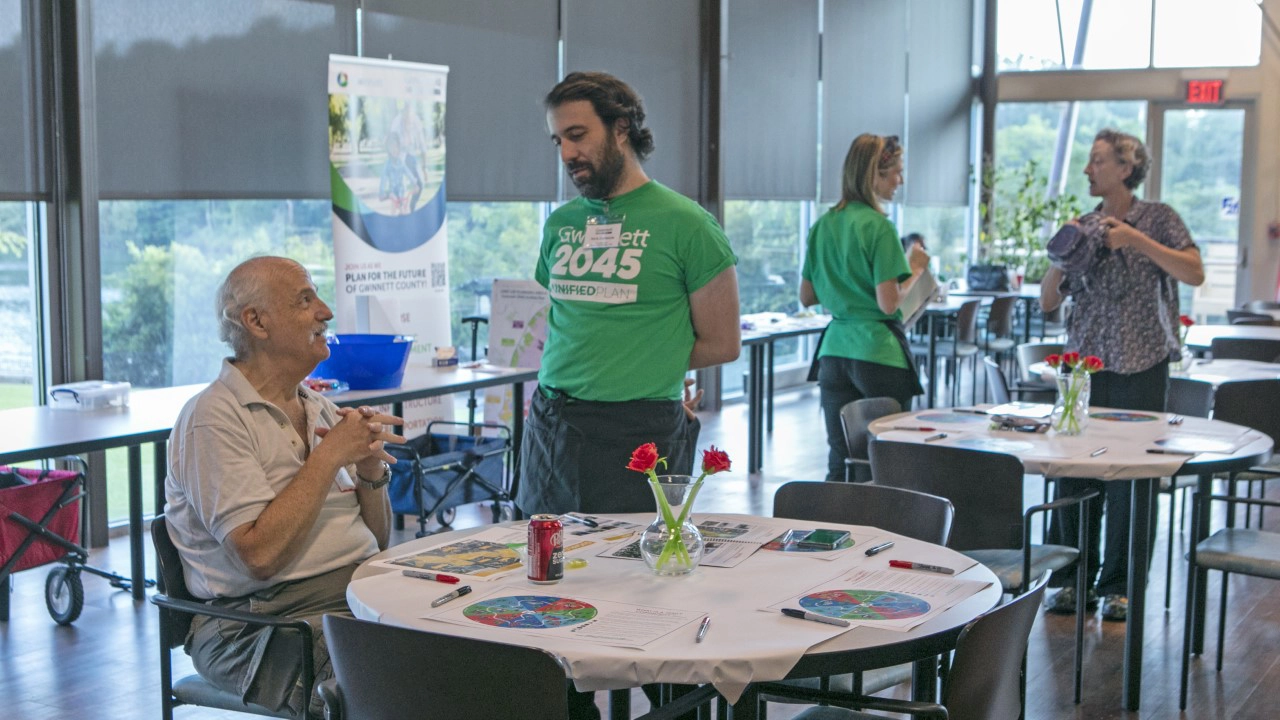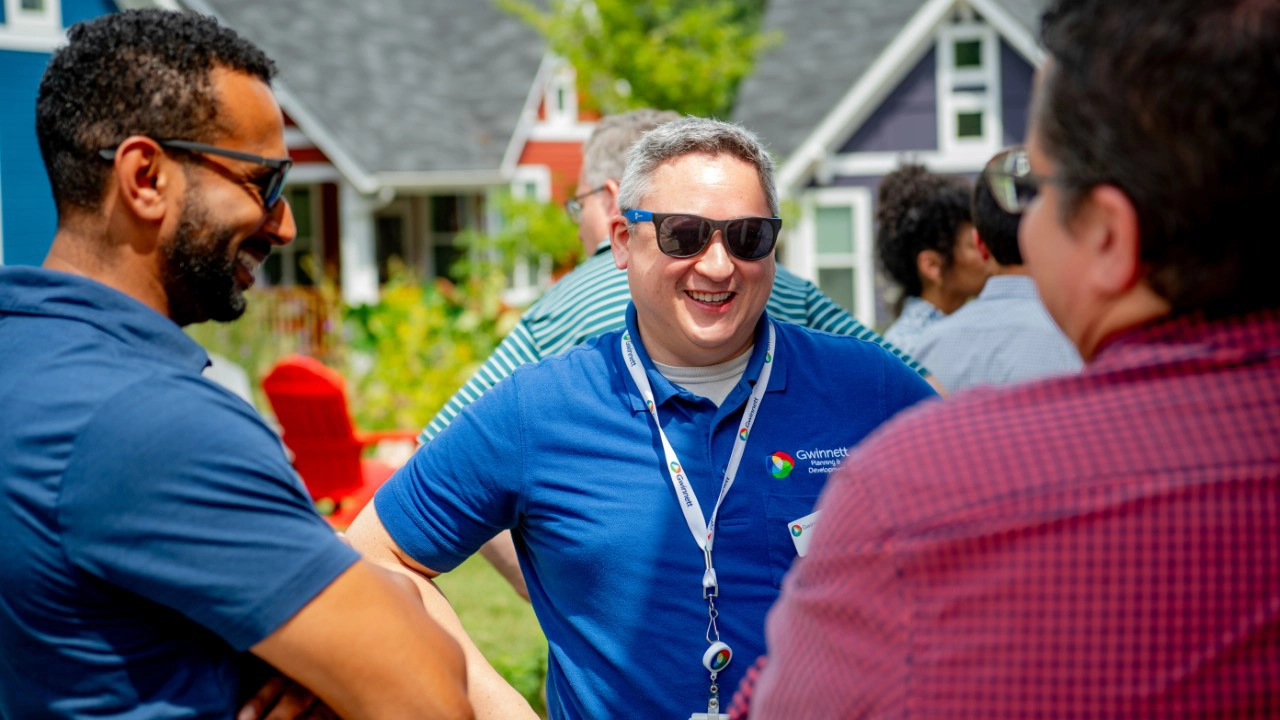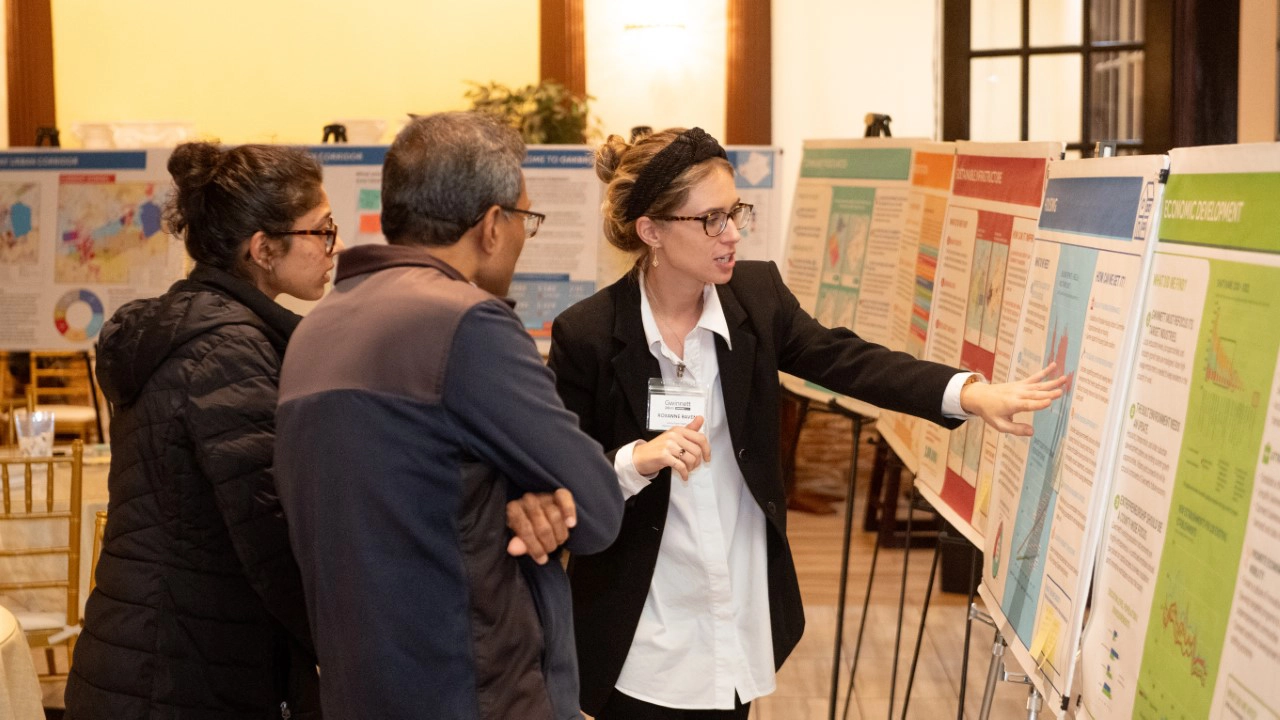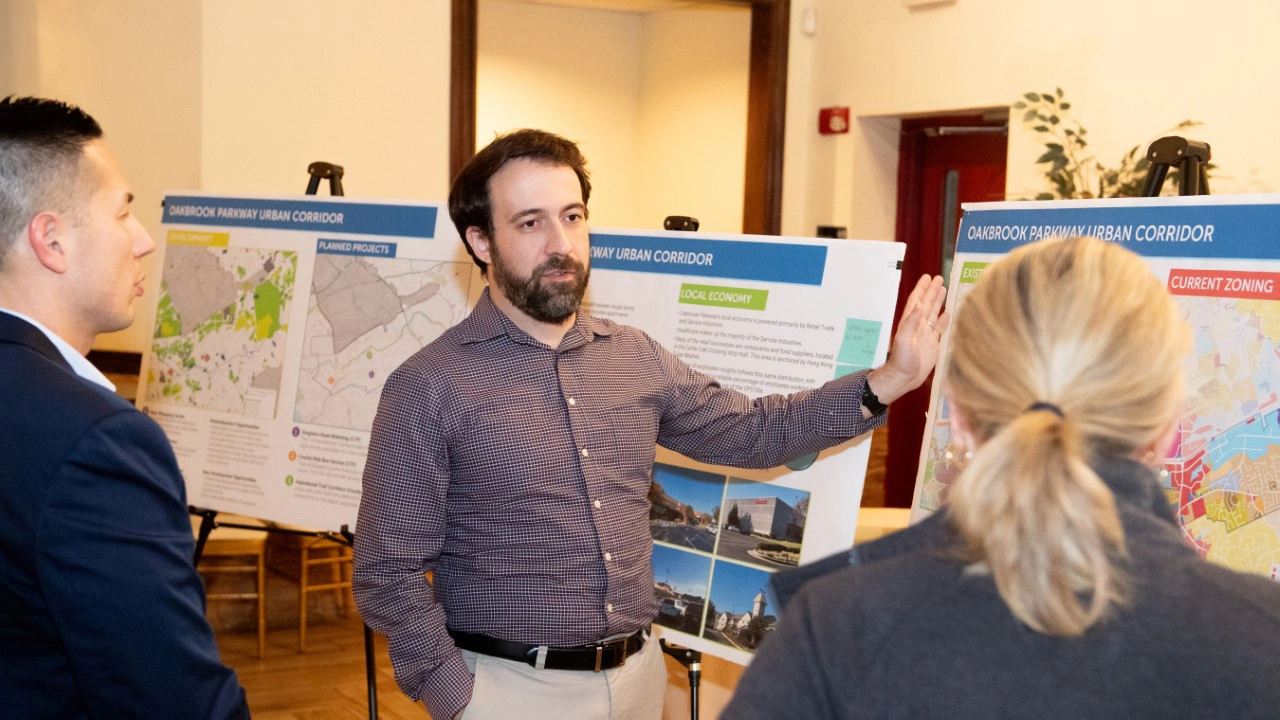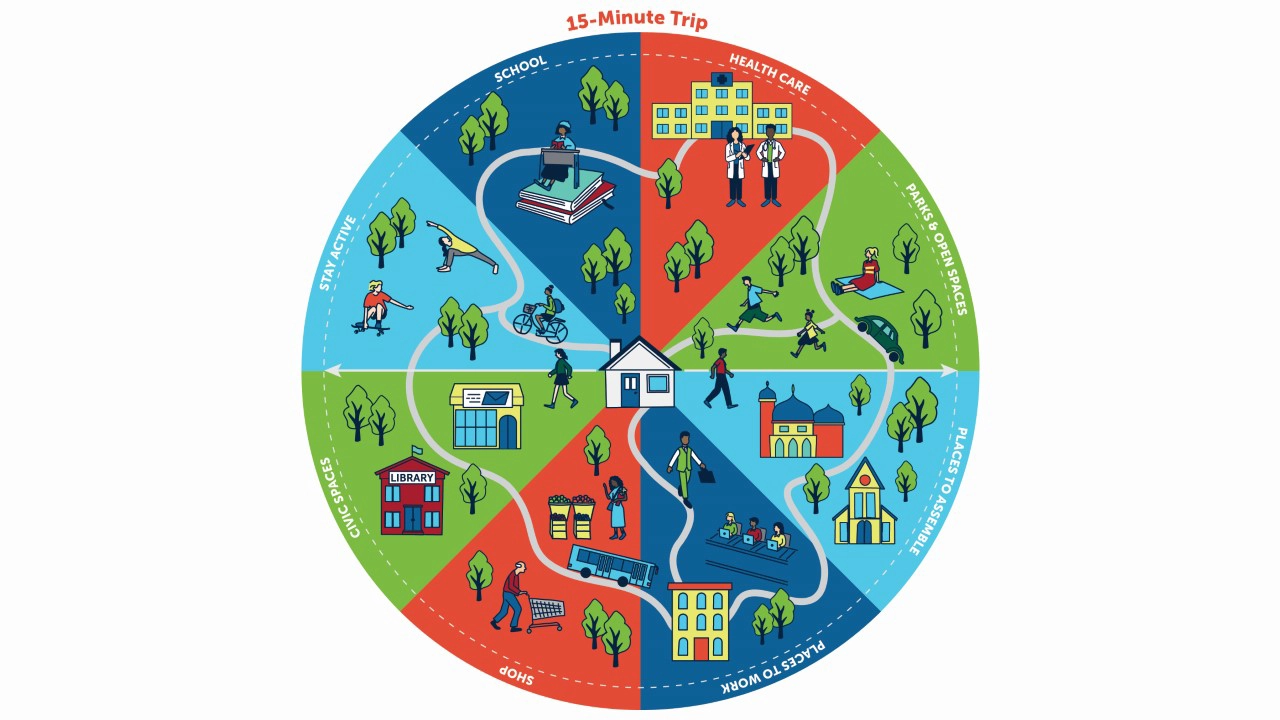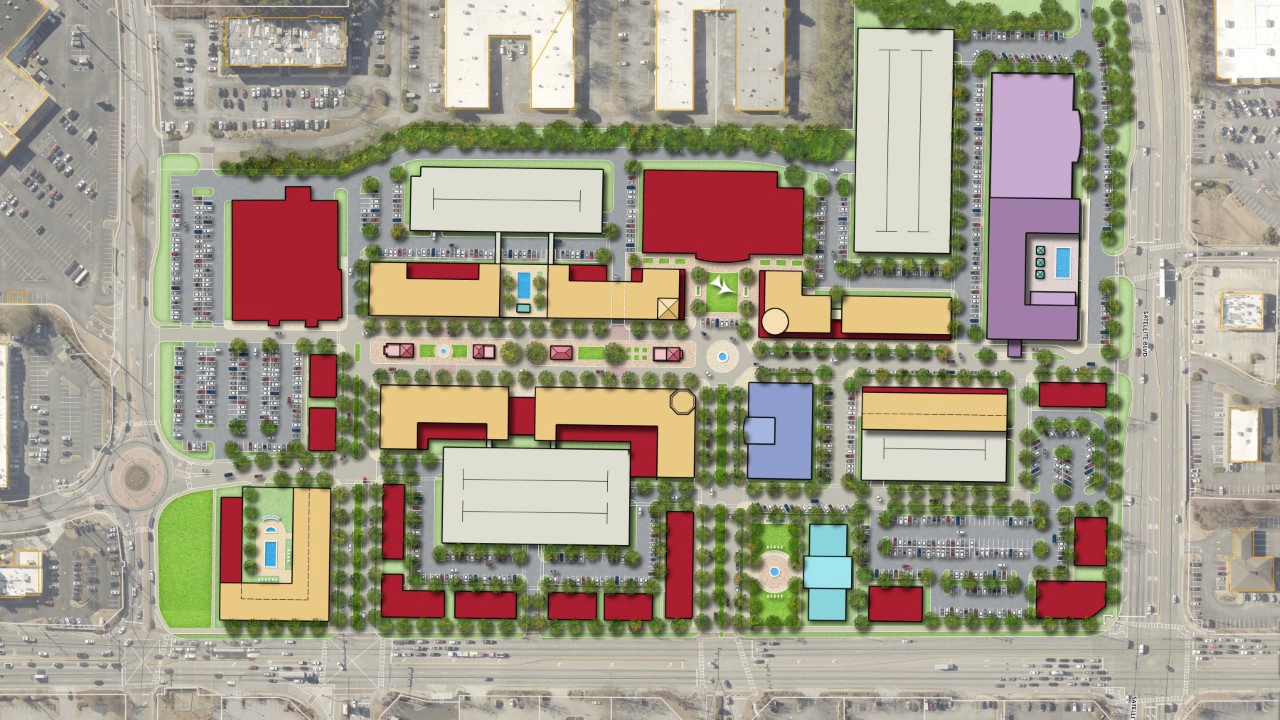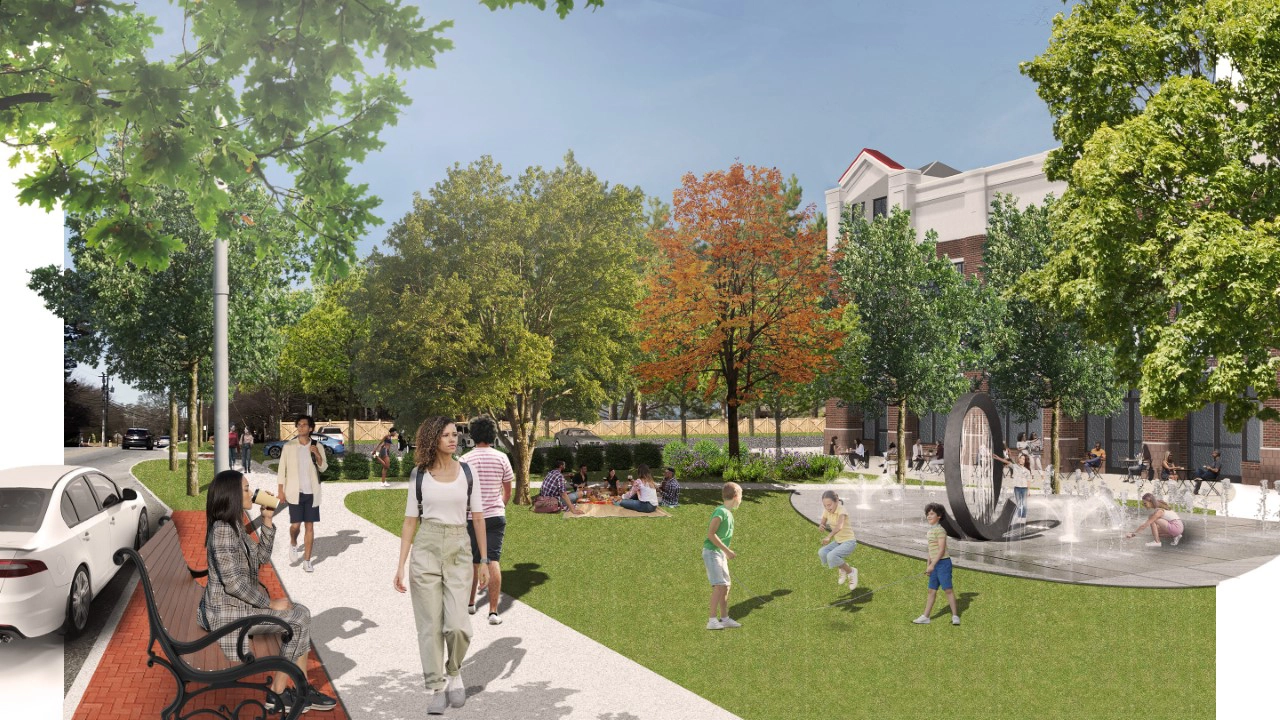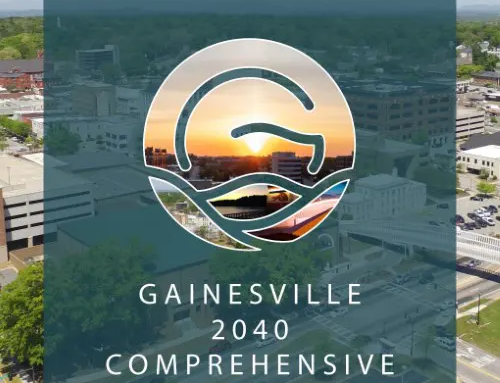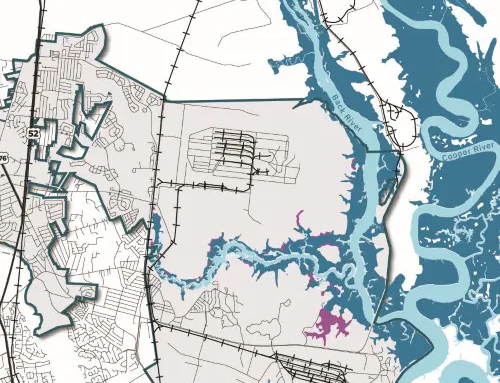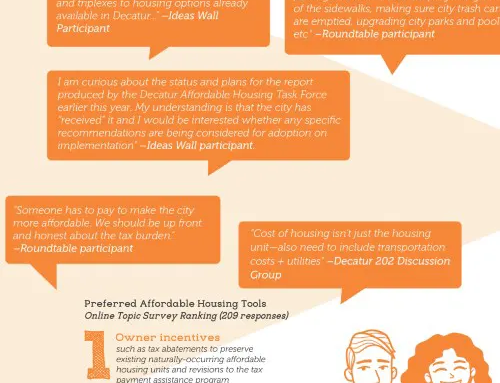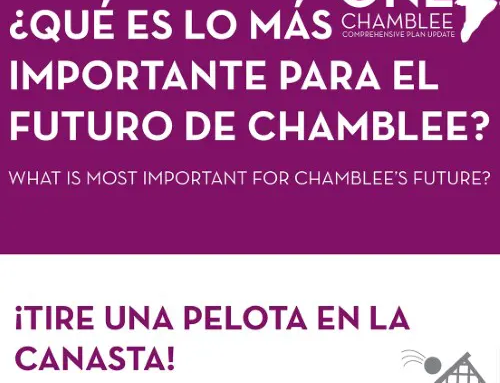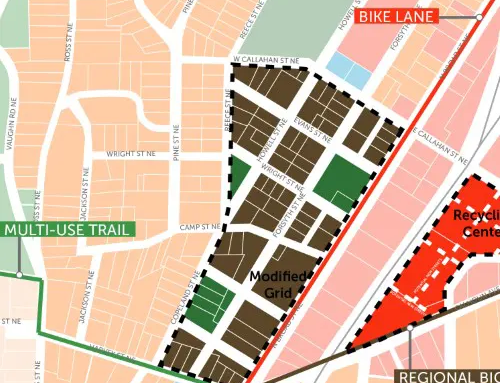Details:
Highlights:
Description:
In 2023, TSW led a multidisciplinary team to provide Gwinnett County with a full update to its comprehensive plan, known as the Gwinnett 2045 Unified Plan. For the past several decades, Gwinnett County’s population and economic growth has been swift and tremendous. While it is still mostly suburban in character, Gwinnett is diversifying and reckoning with the challenges of urbanization.
The Gwinnett 2045 Unified Plan eschews a one-size-fits-all approach to land use, focusing instead on the parts of Gwinnett County with the highest potential for redevelopment. Loosely adapted from the “15-Minute City” concept, the planning team developed a land use framework anchored by village centers that would allow residents to access daily goods, services, entertainment, and public space within a 15-minute trip (including walking and transit trips) of their home. These Daily Communities are focused on redeveloping existing centers into walkable neighborhoods.
Community engagement for the Gwinnett 2045 Unified Plan was uniquely tailored to the Daily Community concept. The team hosted a series of Daily Community Cafes, where attendees could “order” specific types of housing, economic development, and amenities for their own Daily Community. The cafes also explored what types of redevelopment residents thought were appropriate and desirable for their particular neighborhoods.
Alongside community input, TSW led a detailed, parcel-based analysis of redevelopment potential which integrated priorities from parallel planning efforts looking at transit, trails, parks, and housing. The team developed goals addressing all these components, then tested how they work together through five Small Area Plans in a variety of Gwinnett’s future development types, from its urban corridors to its future mixed use villages. Using the high-level goals as a framework, the team designed redevelopment concepts that would allow Gwinnett County’s diverse communities to grow and redevelop appropriately based on those areas’ unique history and character.
The Gwinnett 2045 Unified Plan team regularly coordinated with residents of diverse backgrounds and County staff from multiple departments to produce a vision for Gwinnett that is both visionary and realistic.

